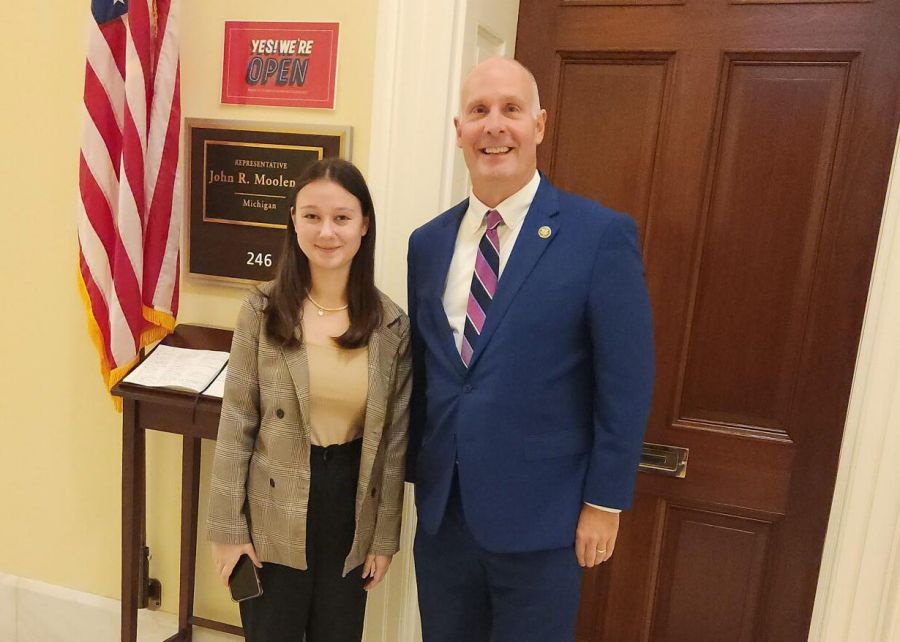‘It got me even more excited to be a professional journalist’
Carol Pierce
Mar 1, 2021
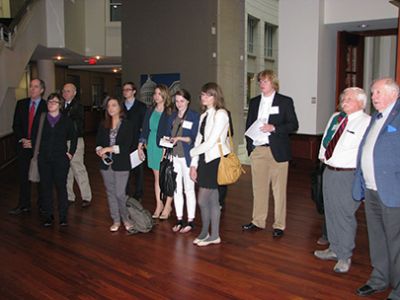
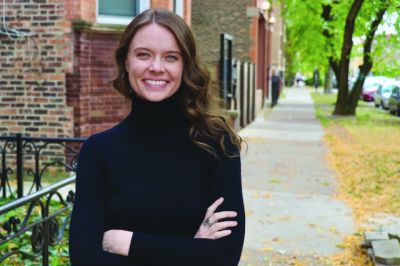
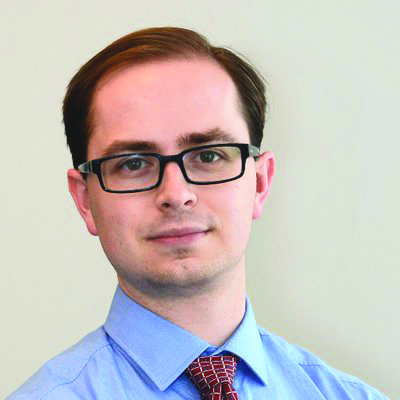
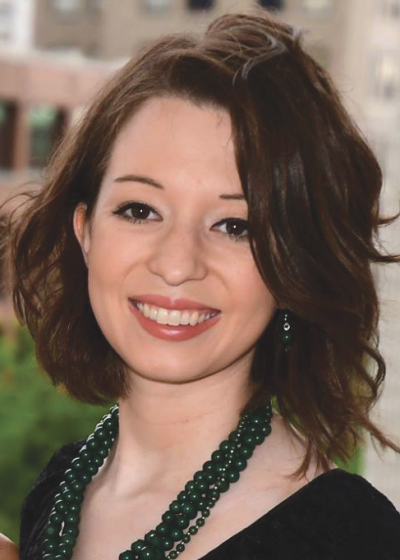
In 2013, National Newspaper Association and National Newspaper Association Foundation began a program for college journalists to address widespread concerns about declining news literacy. Designed to help young writers distinguish fact from fiction in leading news stories, the News Fellows program brought six to 10 young journalists to Washington, D.C., under generous sponsorships from various state press associations, to cover a national news story written for their local audiences during NNA’s Community Newspaper Summit/Day on the Hill.
Pub Aux wanted to know: where are they now? And what do they have to say about their intense three-day introduction into national journalism? Here are some of their responses. This series began in the January 2021 issue.
COURTNEY KUEPPERS, CLASS OF 2015
Sponsored by the Wisconsin Newspaper Association
Theme: Immigration
Mentors: Liz Parker, Walt Kaechele, Steve Haynes, Mark Magyar, Kevin Schwartz, Mark Stodder, Toby McIntosh and Stan Schwartz
Q. Where are you now, and what are you doing?
A. I moved to Chicago this fall to begin a graduate program at Northwestern University’s Medill School of Journalism, where I’m studying social justice and investigative reporting. Before coming to Chicago, I was working at the Atlanta Journal-Constitution.
Q. What was your college media job at the time that qualified you to attend?
A. At the time I was selected as a news fellow, I was a journalism student at the University of Wisconsin-Eau Claire. I was then the editor of the student paper, The Spectator, and a part-time reporter at the Eau Claire Leader-Telegram.
Q. Describe the story you wrote as a result of your interviews; what was your general theme?
A. The year I was a fellow, the program focused on immigration issues and the deadlock between President Obama and Congress on passing immigration reform. Of course, a lot of things we were reporting on at the time only became increasingly relevant in the years to follow. I focused on immigrant communities in Wisconsin and the reliance of their labor in that state’s agricultural industry.
Q. If you visited Capitol Hill, what was your impression of the visits with Congressional staff or members? Recall anything special about the conversation?
A. At that point in 2015, Rep. Paul Ryan had not yet become Speaker of the House, but as part of the time we spent reporting on the Hill, I interviewed Ryan’s chief of staff. I ended up spending the summer after the program reporting on the Hill, focused on the Minnesota delegation, and this experience was a great primer.
Q. Did any of your interviews leave a lasting impression?
A. One of the best parts of the program was the opportunity to interview officials from the White House and with advocacy groups like National Council of La Raza. Those proved to be really memorable experiences.
Q. What was the most memorable part of your News Fellows experience?
A. Without a doubt, the best part of the program was meeting the other fellows, many of whom I am still in contact with and who are doing outstanding work in journalism. It’s a great network to be a part of.
Q. Did your experience change the trajectory of your career in any way? If so how?
A. The program definitely made me hungry to return to Washington, which I did for a couple other opportunities after being a news fellow. At the same time, getting to know the mentors in the program really underscored the importance of local journalism.
Q. If you were going to change anything about the way that big, important issues are covered, drawing upon your News Fellow experience and your career lessons since, what would it be?
A. I think it’s important to always remember who we are serving with our journalism. I am most interested in telling stories about how policies set in places like Washington or at statehouses across the country affect the lives of everyday people and the ways in which our democracy does, and does not, work for all citizens. It’s important to remember that who we give a voice to in our reporting matters immensely.
JACK WITTHAUS, CLASS OF 2015
Sponsored by the Missouri Press Association
Theme: Immigration
Mentors: Liz Parker, Walt Kaechele, Steve Haynes, Mark Magyar, Kevin Schwartz, Mark Stodder, Toby McIntosh and Stan Schwartz
Q. Where are you now, and what are you doing?
A. I'm the commercial real estate reporter for the Orlando (Florida) Business Journal.
Q. What was your college media job at the time that qualified you to attend?
A. I was working either at the Columbia Missourian or the Columbia Daily Tribune in Columbia, Missouri.
Q. If you visited Capitol Hill, what was your impression of the visits with Congressional staff or members? Recall anything special about the conversation?
A. The most memorable discussion was with Senator McCaskill. (I'm from Missouri.) We talked about the history of Harry Truman, issues facing rural Missourians and the burdens increasing mail costs cause for community newspapers and small businesses.
Q. Did any of your interviews leave a lasting impression?
A. I learned it is possible to form relationships with powerful sources. I discovered my grandfather, publisher of the Washington Missourian, was on a first–name basis with his senators and representative and was comfortable talking to them about their families and hometowns. They all knew him and had visited him at his newspaper office.
Q. What was the most memorable part of your News Fellows experience?
A. Getting to know the other student journalists. I have remained friends with the others in my class and followed their successful careers in journalism.
Q. Did your experience change the trajectory of your career in any way? If so, how?
A. It got me even more excited to be a professional journalist.
Q. If you were going to change anything about the way that big, important issues are covered, drawing upon your News Fellow experience and your career lessons since, what would it be?
A. People want to read about people, and the most successful reporting on big issues focuses on the people affected by the issue.
JENA SCHOENHOFER, CLASS OF 2014
Sponsored by the Kansas Press Association
Theme: Government Surveillance
Mentors: Walter Kaechele, Mark Magyar, Elizabeth Parker, Teri Saylor and Steve Haynes
Q. Where are you now, and what are you doing?
A. I am the marketing specialist at Foundation 2 Crisis Services, a nonprofit mental health organization in Cedar Rapids, Iowa. I manage internal and external communications and work to tell our client and staff stories daily to encourage others to seek care, grow community support and cultivate positive change toward mental health.
Directly out of college, I worked at a converged TV newsroom and newspaper, anchoring weekend shows and writing daily articles. I focused on religion and health topics, contributing daily pieces for TV, web, print, social and more.
Q. What was your college media job at the time that qualified you to attend?
A. I was the managing editor of the Kansas State University student newspaper, the Collegian.
Q. Describe the story you wrote as a result of your interviews. What was your general theme?
A. My article on government security included unusually high-level sources and is still available on the Kansas State Collegian website.
Q. If you visited Capitol Hill, what was your impression of the visits with Congressional staff or members? Recall anything special about the conversations?
A. Visiting Capitol Hill was a surreal experience, and I was completely out of my element. I soaked up every interview and every opportunity to ask "real questions" of national figures.
Q. What was the most memorable part of your News Fellows experience?
A. I highly enjoyed getting to meet other fellows from across the nation, to see D.C. behind the scenes and to ride the subway!
Q. Did you pursue, or at least consider, going into newspaper journalism? What can you tell us about that consideration?
A. I did go into newspaper journalism for about four years right out of college. I loved telling people’s stories, especially focusing on rural America. I continue to pursue freelance print journalism opportunities and incorporate the skills I learned as a print journalist into my current role.
Q. If you were going to change anything about the way that big, important issues are covered, drawing upon your News Fellow experience, what would you change?
A. I strive to answer the question, “How does this impact me?” in all issues, especially big, important issues. I try to focus on the individual to avoid misunderstanding and unnecessary panic.
Carol Pierce is the director of Washington programs.


